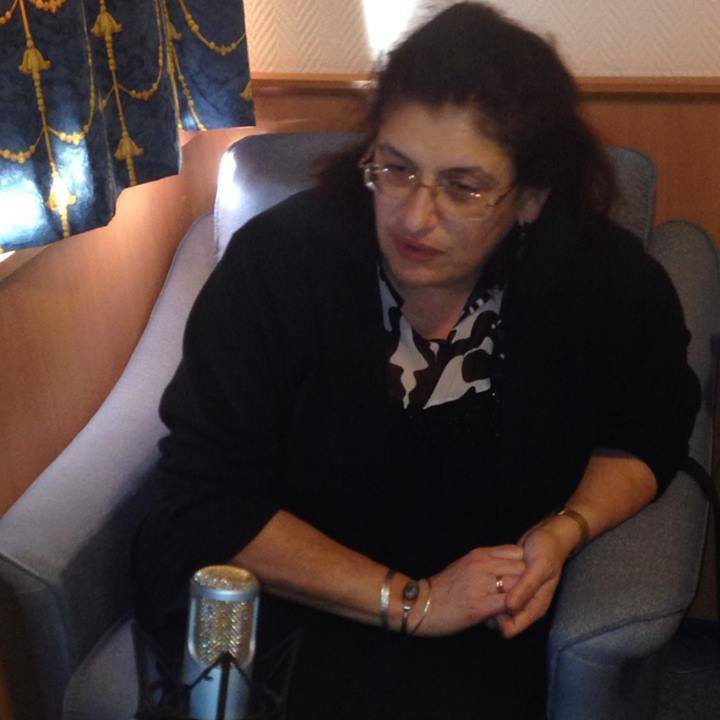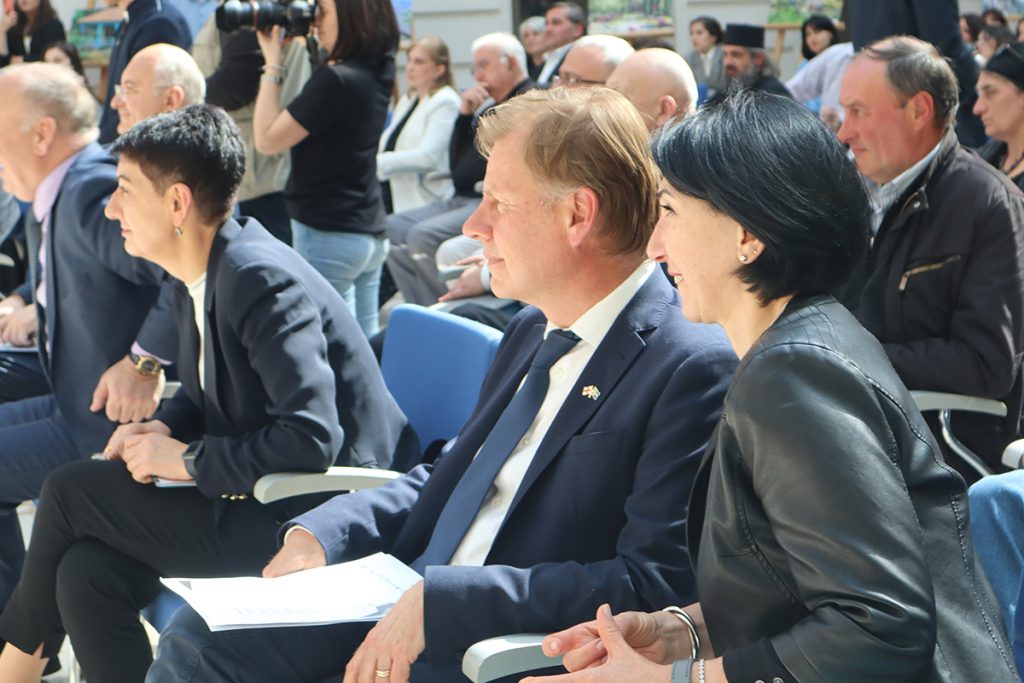Green Projects of Greens Movement

The Greens Movement of Georgia / Friends of the Earth – Georgia is one of the first environmental protection organizations in the country established in 1989. In the more than 30 years of its history, the organization has conducted a number of projects aimed at environmental protection and raising public awareness in this field. This includes preserving ecology and ecosystems, organizing campaigns against littering and raising awareness of children and youth in the field of environmental protection.
On the initiative of the organization, in 2015, a competition called Clean Region was established, which is organized annually across the country. As a result of the competition, public interest has increased, public participation in waste management has become a priority, and municipalities and regions started competing in terms of waste reduction.
The Greens Movement of Georgia / Friends of the Earth – Georgia actively cooperates with the Government of Sweden and partnering organizations including Keep Georgia Tidy. Facilitating reduction of global climate-change-induced greenhouse gas emissions and environmental protection, and the implementation of tenets of circular economy are the main goals of this cooperation.

Nino Chkhobadze, the Chair of the Greens Movement
Please tell us about the importance of the projects financed by the Government of Sweden, which are aimed at environmental protection.
One of the most important projects was Clean Up Georgia, which was launched in 2010 with the financial assistance of the Government of Sweden. It aimed to facilitate the development of a waste management system in the country, introducing multi-stage waste management system and raising public awareness in this context.
As part of the project, uncontrolled landfills were recorded within the entire territory of the country and interactive maps were created, cleaning campaigns, meetings with population as well as government representatives were organized, and public awareness-raising took place in the context of waste management. The organization lobbied for the adoption of new waste management legislation. In 2015, a new waste management code was adopted which is in compliance with EU directives.
As part of the project Keep Georgia Tidy, you implemented various activities together with partnering organizations. To what extent is the project aimed at meeting the Sustainable Development Agenda?
As already mentioned above, the Greens Movement of Georgia / Friends of the Earth – Georgia is actively cooperating with the Government of Sweden and is implementing the project with partnering organizations, this time the project name is Keep Georgia Tidy, which is kind of a follow-up to the project implemented between 2010-2018 – Clean Up Georgia.
The Project Keep Georgia Tidy facilitates the implementation of the Sustainable Development Goals. With project components, complete monitoring is carried out for the implementation of five-year plans for municipal waste. Four campaigns are ongoing: Clean Up the Georgia, Clean Up the World, Keep Georgia Tidy, Blue Stream, Clean Region Competitions.
In the period of project implementation, raising public awareness and the engagement of the public in cleaning events as well as the reduction of uncontrolled landfills were facilitated. For each municipality a detailed analysis was carried out on the process of waste management. A collection of internet magazines was published which includes the full legislation on waste management.
Engagement of the business sector and the government of Georgia on both the central and local levels increased in the process of waste management system improvement. Our organization had the opportunity to organize consultations for municipalities to develop five-year plans for waste management and purchase equipment. This will ensure a clean and healthy environment which is a human right guaranteed under the Constitution of Georgia.
In addition, it is worth mentioning that one of the main goals of the project is to facilitate the reduction of greenhouse gas emissions due to global climate change and environmental pollution and to implement the principles of circular economy.
The reporting period of the project Keep Georgia Tidy is 2019-2023 and the events planned under the project will be carried out in 63 municipalities of 10 regions and four self-governing cities of Georgia and in Tbilisi.
For several years you have been carrying out an award ceremony of clean regions and you hand over certificates to municipalities, cities, villages and private persons for their contributions to the improvement of the waste management system, which is an important contribution in the field of environmental protection. What are the results of the activity and what challenges do municipalities face?
One of the extremely important and effective events the project managed to achieve was the Clean Region competition, which is gaining more meaning and significance. The number of nominations and participants is increasing. The competition was announced in 2015 for the first time and has been ongoing across the country ever since.
As a result of the competition, public interest became more active, environmental awareness has increased and public engagement in waste management became a priority. Competition increased between municipalities and regions in terms of waste reduction. The title of a winner of Clean Regions was found to be important to the regions and municipalities as well as private persons.
It should be mentioned, however, that for the implementation of the comprehensive waste management system which is an obligation under the Association Agreement, a lot has yet to be done. In accordance with the agreement, separation/sorting of waste and preparing for next stages of the waste management system should start in the country from next year. In parallel to separation, it is also necessary to create and support plastic, paper and glass processing plants.
It should be mentioned that collection and removal of waste is organized in cities but in regions and municipalities there still are serious problems. One issue is lack of containers and waste transportation vehicles.
How important is raising public awareness of environment protection, environmental education of children and youth and initiating ecofriendly projects and activities?
In general, the public plays a key role in environmental protection as well as promoting the development of the state. Engagement of each citizen in making any decision guarantees future well-being, living in a healthy environment and a better future. The sooner we learn this and teach future generations love for one’s country and the environment from an early age, the fewer problems will be created for the future.
The significance of responsibility of citizens and future generations in environmental activity is demonstrated by the experience of Sweden, which took several decades. The awareness-raising campaigns implemented appropriately by the organizations of this country mostly led to the achievements which make Sweden one of the most recognized countries in the context of waste management. Currently, each citizen of Sweden is well aware that sorting and recycling waste is necessary. This approach clearly indicates the responsibility of each citizen for their country and the environment. Such actions should become exemplary and encouraged for our citizens. I believe that nothing is impossible. I believe that Georgia will also share this approach, it will meet the commitment under the Association Agreement and adopt modern standards of waste management.

What is the role of multisector partnerships (between the state, private and non-governmental sectors) for the achievement of the Sustainable Development Goals by 2030? What role does the private sector, including corporate responsibility, play in this context?
For the achievement of the Sustainable Development Goals, joint efforts and cooperation are necessary between the state and other stakeholders, be it the private sector or NGOs. To meet these global goals, each of them has various mechanisms and ways, which, overall, should be harmonized with each other.
In the context of multisector cooperation, by sharing opinions and experiences, it is possible to achieve desired outcomes quickly. By cooperating with each other we can “think globally” and do much more together with the government and the business sector than we can do individually.
One of the important challenges of the non-governmental sector is the development of integration, implementation and supporting synergy policy by engagement of the business sector, government and the public.
Our organization is well aware of its own rights and obligations, based on which it always assumes responsibility and actively facilitates implementation of various important projects.
What would you recommend to the state and the private sectors to mitigate climate change-induced threats and achieve the Sustainable Development Goals?
Currently, climate change is the most important global challenge requiring timely action from the government of each country. Among them is the government of Georgia as well. Our country, like others, is a signatory of various international treaties including the most important document of the recent period, the Paris Agreement, according to which, the states agreed that by 2050, global temperature rise on earth would be limited to 2 degrees compared to the industrial level and it would not exceed 1.5 degrees Celsius.
By signing this agreement Georgia also assumed an obligation and set a goal to promote the introduction of modern climate-smart technology in energy, manufacturing, agriculture and waste management sectors, implementation of coast protection measures in the river channels and the shoreline of the Black Sea, reduction of the risks of flash floods and mud flows in high mountain areas, fighting against desertification in the regions of east Georgia and protection of the population at high risk.
As an NGO, we aim to support the state in fulfillment of these goals, to reduce greenhouse gas emissions leading to climate change by means of low-emission development. At this stage, we are focusing on the Conference of the Parties of the UNFCCC – COP-27, in which the Government of Georgia has also participated. We hope that the conference will play a significant role in mitigation/adaptation of climate change and meeting the commitments made.




 Search
Search





